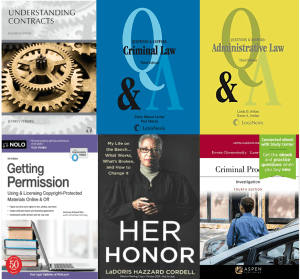By now you’re likely familiar with model laws, like the Model Penal Code or the UCC, but what do you do if you need to research a model law? This week, in his special column, “Research Tips from an Old School Librarian,” research librarian John Shafer introduces us to the National Conference of Commissioners on Uniform State Laws and the Uniform Laws Annotated and why you might consider using them in your research.
The National Conference of Commissioners on Uniform State Laws (NCCUSL), a non-partisan non-profit organization, is one of the most successful efforts to update, harmonize promote uniformity of the law through the creation of a wide-ranging body of model laws. Founded in 1892, NCCUSL works with legal experts, industry representatives, and other stakeholders to develop these model laws, designed to address emerging legal issues and promote the efficiency and fairness of the legal system.
The NCCUSL developed many model laws, including the Uniform Commercial Code (UCC), the Uniform Probate Code (UPC), and the Uniform Trust Code (UTC), among others. Many states, including California, adopted these model laws in whole or in part. You’re likely familiar with these model codes, since they are frequently referred to in law school classes and casebooks today.
While you can learn a lot about many different model laws through the NCCUSL, all serious researchers should also know about another important resource for model laws – the Uniform Laws Annotated (ULA). The ULA is published by Thomson West and is available in Zief (in print) and on Westlaw. The ULA offers several research features in both the print and digital versions, including:
- Full text of model laws: The ULA contains the complete text of model laws, including the UCC, the Uniform Business Organizations Code, the UPC, the Model Penal Code, and others, along with any revisions or amendments made over time.
- Annotations: The ULA includes detailed annotations explaining each provision’s purpose, history, and interpretation through official and editorial comments. The annotations also include references to relevant cases and other authorities that interpreted or applied the model law.
- Comparative analysis: The ULA provides a comparative analysis of model laws, showing comparisons across the United States.
- Cross-references: The ULA includes cross-references to other model laws, to relevant U.S. Code sections, and to other sources of law.
However, missing from the ULA’s digital Westlaw version are the extensive indexes included in the print version. If you’re instead using Lexis+ for your research, you’ll find the ULCLAW – Uniform Law Commission Model Acts, but it lacks much of the content and many of the features found in the ULA.
So, if your research involves one of the many Uniform or Model Laws, you might want to consider using one of these model law resources.


